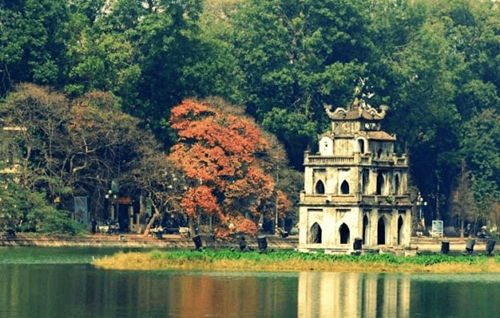The Vietnamese capital became a new member of the network in the field of design, the department said, noting that although Hanoi is strong at many fields of creativity, it decided to apply for the status in terms of design since this area has wide coverage, is closely linked with other fields, and can reflect the city’s potential and strength in bringing into play its creativity.
    |
 |
|
The Turtle Tower in Hoan Kiem Lake is a symbol of Hanoi. (Photo: bvhttdl.gov.vn) |
Besides, Hanoi has also met the standards for a creative city of design, including a developed design industry, multiple opportunities for creating designs from natural materials and conditions, and the presence of design groups with frequent activities.
The municipal department said joining the UNESCO network is the first but significant step for Hanoi to raise its standing and create a new and more attractive image of the city.
To realise its commitment to the UNESCO Creative Cities Network, Hanoi will issue a long-term action programme and connect its policies to promote cultural industries and enrich local cultural resources. It will also create prerequisites to help other Vietnamese cities to take part in the network and actively contribute to the network’s development, thereby affirming its stature as the creative capital of Vietnam in Southeast Asia and the world.
A total of 66 cities were designated as UNESCO Creative Cities on this occasion. Apart from Hanoi, the seven other creative cities of design are Asahikawa (Japan), Baku (Azerbaijan), Bangkok (Thailand), Cebu City (the Philippines), Muharraq (Bahrain), Querétaro (Mexico), and San José (Costa Rica).
The UNESCO Creative Cities Network, founded in 2004, aims to enhance cooperation among the recognised cities with creativity considered a strategic factor of sustainable development. Its membership has reached 246 at present.
Source: VNA